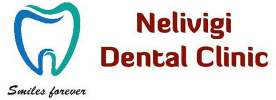Dentures can replace teeth that have been lost due to injury, disease, or decay. Complete or partial dentures can restore your oral health, improve your ability to eat and speak, and give you the confidence you need to smile again. Modern dentures are made to closely resemble your natural teeth and most patients report that they are comfortable to wear.
A denture is a removable dental appliance used to replace missing teeth and restore healthy oral function. Dentures are typically made from acrylic resin and porcelain with metal supports.
There are two main types of dentures :
-
- Complete (full) dentures.
-
- Complete dentures are used to replace all the teeth on your upper or lower jaw.
- The denture is made of a plastic base that resembles natural gums.
- The base can support a full set of plastic or porcelain teeth.
- Partial dentures.
- Partial dentures are used to replace multiple teeth on the upper or lower jaw.
- The denture is made of a plastic base or metal framework that supports plastic or porcelain teeth.
- Partial dentures are held in place with clasps that attach to adjacent mouth structures.
-
Patients interested in complete or partial dentures should contact their dentist for a consultation. If you have lost a majority of your natural teeth, complete dentures might be great way to restore your smile. If you still have most of your teeth, you may be a candidate for partial dentures. Your dentist can conduct a thorough oral examination and recommend an appropriate treatment plan for your situation.
Dentures are made during a process that typically takes 6 to 12 weeks, depending on the complexity of the case. To begin, your dentist will take a series of dental impressions. A dental laboratory can use these impressions to build model of your mouth, which is used to build a custom denture. You may need to come in for several appointments to adjust the color, shape, and fit of your custom denture. At the last appointment, your dentist will fit the denture in your mouth and verify that the appliance is both comfortable and aesthetically pleasing. Dentures may require periodic maintenance due to normal wear and tear or natural changes in your mouth. Always follow your dentist’s instructions for maintenance and repairs.
It can take some time to adjust to new dentures. Your mouth may be slightly sore at first. Contact your dentist if your dentures are irritating your gums. You may experience increased saliva production at first, but the effect will go away over time. Learning to eat with dentures can require some practice. Start with soft foods and chew on both sides of your mouth. Avoid sticky or chewy foods. As you get used to your dentures, it will become easier to keep them in place.
Dentures are delicate, so handle them with care. Handle your dentures over a towel or sink full of water to prevent damage from accidental drops. When you’re not wearing them, store them in a secure location away from children and pets. Your dentures must be cleaned daily to remove food, plaque, and stains. Use a soft toothbrush and dental cleanser to gently clean every surface. Be sure to rinse your dentures thoroughly to prevent gum irritation due to the detergent. When not wearing your dentures, keep them moist by placing them in water. Never soak your dentures in hot water, as it could cause damage. Your dentist can recommend a proper care plan for your particular denture.
When properly cared for, dentures can last at least 5 years. As your jawbone naturally shrinks over time, your dentures may become loose. Your dentist can use a liner to refit your dentures when necessary. Schedule regular dental appointments to ensure that your dentures still fit properly. It’s not advisable to wear an ill-fitting denture, because it can cause your jawbone to shrink at a faster rate. Minor damage to the teeth or plastic base can generally be fixed in a few days. Denture repair can be complicated, so contact your dentist if you notice any problems with your dentures.
